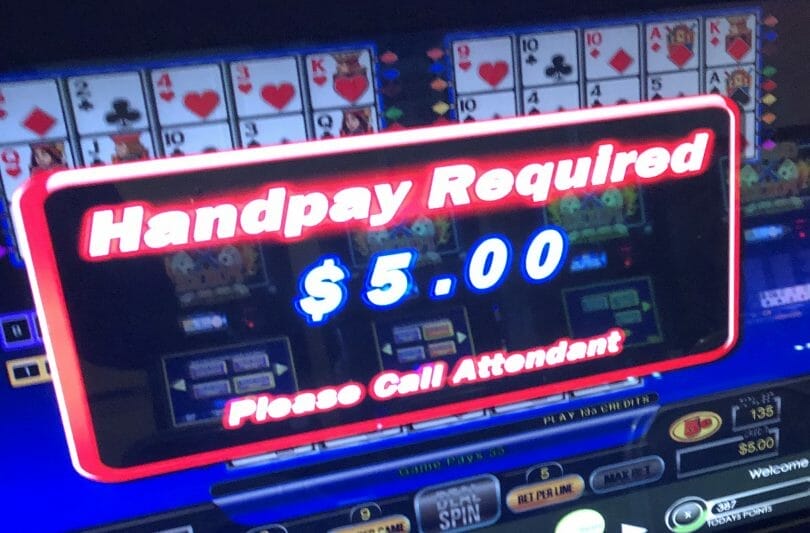In a forum I frequent, a player recently had a simple, yet reasonable question:
Are slot machines required to give a jackpot?
Regular readers may know the answer to this already, but let’s dive in:
STATUS: Slots aren’t required to pay jackpots, for a variety of reasons, but if they’re designed to have payouts that exceed the handpay limit, there has to be a way for them to be hit within the combination of possibilities.
When it comes to the design of slot machines, there’s a couple of things to consider around this question. The first is whether a slot is designed to reach the handpay limit at all. There are plenty of slot machines whose max payouts do not reach a handpay, which I’ve written about here previously.
So, in the strictest sense, slots aren’t required to give any jackpots, especially if they’re not designed to reach that high. Fair enough, right?
But if a game does have a handpay-sized payout on there, do they have to pay it? If it’s on the pay table or listed as something available to the player, regulations will require some way for it to be triggered.
Some regulations have historically defined a limit to what the top payout’s odds can be, to avoid it being impossibly difficult, but we know that games like Megabucks can be incredibly difficult to win, so those odds can certainly be quite minute.
But minute odds doesn’t mean never, so when it comes to whether they can be designed to never handpay, the only scenario would be if the game doesn’t offer such a large payout to begin with.
You can’t look at a slot machine and have a complete understanding of how often a jackpot will pay, but like the various ways a game shows its potential volatility, you can get an indication of how good or bad the chances of a handpay will be.








